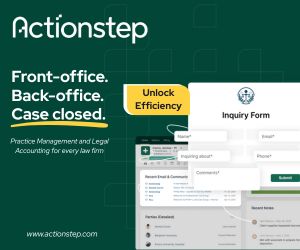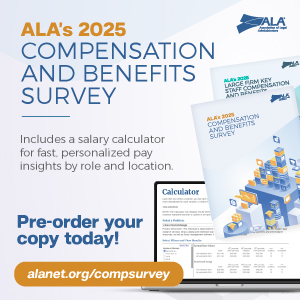John Kitchen, an IT security expert, warns of the heightened vulnerability around data exposure: “As law firms explore the benefits of AI, many remain justifiably cautious, uncertain whether training data is truly secure or could later be used against them,” he says. “The risk of inadvertently exposing proprietary or personal information (PI/PII) during AI integration is real and potentially catastrophic. With AI adoption accelerating, safeguarding sensitive firm data through rigorous vetting, real-time monitoring and ethical governance must be a non-negotiable priority for any legal organization.”
Data Protection and Data Security: Same Coin, Different Sides
Data protection encompasses data security, as well as policies, legal compliance and user rights related to the collection, storage and use of data. Fundamentally, data protection aims to safeguard the confidentiality, integrity and availability of critical and essential business data. Data security focuses on the tools and techniques — such as encryption, firewalls and access controls — used to guard data from unauthorized access, breaches or theft.
With AI adoption accelerating, safeguarding sensitive firm data through rigorous vetting, real-time monitoring and ethical governance must be a non-negotiable priority for any legal organization.
In short, data security is how you protect the data, while data protection is why and under what rules you determine (or are required) to protect it.
Artificial Intelligence and Data Risk
AI poses both unique challenges and operational risks for law firms. Some significant risks include, but are certainly not limited to, the following:
Increased Risk of AI-Generated Fraud
Generative AI poses unique challenges for law firms, including AI-generated voice or video fraud. Firms lacking robust measures to detect or prevent such fraud leave sensitive client information vulnerable, revealing the need for advanced detection tools and training to address these risks.
Challenges in Maintaining Confidentiality
As lawyers use AI tools to analyze client data, there is a heightened risk of exposing sensitive and confidential client information. Lawyers must ensure that AI providers always adhere to (and that firms implement) strict data protection and security protocols to avoid breaches of attorney-client privilege.
Vulnerabilities to Cyberattacks
AI can be exploited by cybercriminals (or even by disgruntled current or former employees) for activities such as ransomware phishing attacks, data manipulation and outright deletion or destruction. Threat actors can utilize AI to identify patterns in computer systems and applications that reveal weaknesses in installed security programs that can lead to the unauthorized disclosure of sensitive client and personnel information.
This undermines confidentiality, a cornerstone of legal practice, and may result in leaked sensitive data or compromised legal strategies. Without proper detection measures, law firms risk breaching ethical duties and client trust, potentially facing legal and reputational consequences. Many firms lack robust measures to detect or prevent such fraud, leaving sensitive data assets vulnerable.
Further, AI can be used to automate and personalize phishing attacks by analyzing user data to craft convincing messages. AI can also enhance malware and ransomware by adapting in real time to evade detection and exploit vulnerabilities more effectively, revealing weaknesses in installed security programs and potentially leading to the unauthorized disclosure of privileged data.
Addressing the emergence of AI and the associated risks, Kitchen stresses, “As AI becomes integral to business operations, organizations must understand that it introduces not only innovation but also complex risks to their most valuable asset (beyond personnel), that being data and/or proprietary information.” He recommends that firms vet AI tools to reinforce data security. “Failing to address AI’s dual nature, as both a powerful defense tool and a potential liability, organizations jeopardize leaving critical, privileged data exposed to an increasingly aggressive threat environment,” he says.
Why Is Data Security Important in the Age Of AI?
The rapid adoption of AI technologies and their ability to process vast amounts of sensitive information make data security a critically important issue.
A firm’s data is not only a valuable business asset, but it is also one that is increasingly subject to external regulation, scrutiny and audit. Global regulations, such as the General Data Protection Regulation (GDPR), the AI Act (EU) and U.S. legislation, such as the Health Insurance Portability and Accountability Act (HIPAA) and the California Consumer Privacy Act (CCPA), require that firms implement rigorous internal controls designed to protect the confidentiality, integrity, privacy, security and access to sensitive and critical data.







